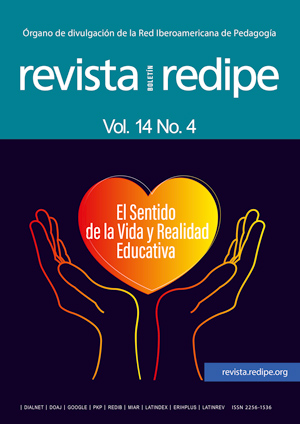Literary criticism and didactics of literature: a dialogic link for the formation of critical readers
Main Article Content
Keywords
Literary criticism, Didactics of literature, Critical reading, Literary education, Reader formation
Abstract
This article examines the relationship between literary criticism and didactics of literature, emphasizing their role in the formation of critical readers. To this end, it analyzes the concept of literary criticism and its main theoretical approaches. It also reviews the transformations in literature teaching and its shift toward models that prioritize student participation and the collective construction of meanings. In summary, three key ideas are highlighted: the value of a dynamic and transformative criticism capable of engaging with contemporary issues; the importance of a literary education that moves beyond traditional models, fostering a formative experience that connects literature with sociocultural reality and strengthens critical thinking in the classroom; and the need for literary didactics to promote an interdisciplinary approach that integrates various critical perspectives to develop students’ literary competence.
References
Bajtín, M. (2005). Problemas de la poética de Dostoievski. México D. F.: Fondo de Cultura Económica.
Balarezo Andrade, D. V. (2022). Ecocrítica: orígenes y fundamentos. Kipus, 52, 111-124. https://doi. org/10.32719/13900102.2022.52.8
Blume, J. y Franken, C. (2006). La crítica literaria del siglo XX: 50 modelos y su aplicación. Santiago de Chile: Pontificia Universidad Católica de Chile.
Bolívar, A. (2005). Conocimiento didáctico del contenido y didácticas específicas. Profesorado. Revista de currículum y formación del profesorado, 9(2), 1-39. https://www.ugr.es/~recfpro/rev92ART6. pdf
Bula, G. (2010). Ecocrítica: algunos apuntes metametodológicos. Logos, 17, 63-76.
Camarero, J. (2015). Epistemocrítica. Las estructuras del contenido en literatura y su relación con otros saberes. Saarbrücken: Editorial Académica Española.
Camarero, J. (2020). El epistemotexto literario. Çédille, Revista de Estudios Franceses, 18, 29-54. https://doi. org/10.25145/j.cedille.2020.18.03
Chevallard, Y. (2002). La transposición didáctica. Del saber sabio al saber enseñado. Buenos Aires: Aique.
Cohen, M. P. (2004). Blues in the Green: Ecocriticism Under Critique. Environmental History, 9(1), 9-36. https://doi.org/10.2307/3985943
Colomer, T. (2005). Andar entre libros. La lectura literaria en la escuela. México: Fondo de Cultura Económica.
Estébanez Calderón, D. (2016). Diccionario de términos literarios. Madrid: Alianza.
Estok, S. C. (2001). A Report Card on Ecocriticism. Journal of the Australasian Universities Language and Literature Association, 96(1), 220-238. https://doi.org/10.1179/aulla.2001.96.1.014
Flys Junquera, C., Marrero Henríquez, J. M. y Barella Vigal, J. (2010). Ecocríticas: el lugar y la naturaleza como categorías de análisis literario. En C. Flys Junquera, J. M. Marrero Henríquez y J. Barella Vigal (Eds.), Ecocríticas. Literatura y medio ambiente (pp. 15-25). Madrid: Iberoamericana; Frankfurt am Main: Vervuert.
Gadamer, H. G. (2017). Verdad y método. Salamanca: Sígueme.
Galván Díaz, F. J. (2022). La crítica(,) obra en el mundo: notas sobre crítica literaria. Connotas. Revista de crítica y teoría literarias, 24, 82-112. https://doi.org/10.36798/critlit.v0i24.377
García Berrío, A. y Hernández Fernández, T. (2012). Crítica literaria. Iniciación al estudio de la Literatura. Madrid: Cátedra.
Genette, G. (1989). Palimpsestos. La literatura en segundo grado. Madrid: Taurus.
Gibbs, R. (2017). Embodied Dynamics in Literary Experience. En M. Burke y E. Troscianko (Eds.), Cognitive Literary Science. Dialogues between Literature and Cognition (pp. 219-237). New York: Oxford University Press.



